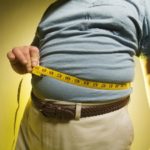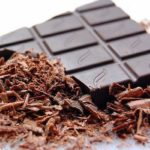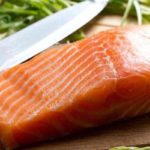Skip Dinner
Skipping dinner can lead to feeling hungry at night and indulging in snacks. People who eat close to bedtime usually consume more calories than those who have their last meal earlier. Over time, consuming more calories will cause weight gain.

Skipping dinner can lead to feeling hungry at night and subsequently overeating.
Excessive Snacking
French fries, biscuits, ice cream, chocolate… are light and easily digestible snacks that don’t make you feel full for long. However, over time, these high-calorie snacks can result in excess calories and lead to weight gain.
Eating Too Close to Bedtime
Consuming a high-calorie meal too close to bedtime can disrupt sleep and contribute to weight gain. The body needs time to digest food, and going to sleep immediately after eating can cause discomfort.
Lack of Sleep
When lacking sleep, the body craves energy-rich foods and experiences hormonal imbalances. This can lead to increased cravings and a decreased metabolism, making weight maintenance more challenging.
Using Phone Before Bedtime
The blue light from smartphones stimulates the brain, making it difficult to fall asleep. Research has shown that the blue light emitted from screens interferes with melatonin production, affecting sleep quality. Poor sleep quality is associated with weight gain.
Drinking Alcohol to Aid Sleep
Alcohol disrupts melatonin levels in the brain. In addition to poor sleep quality, the empty calories from alcohol are equivalent to late-night snacking. If consumed regularly, the excess calories from alcoholic beverages can contribute to weight gain.

Nightly habits that can result in weight gain.
Eating While Watching TV
Eating while watching TV is a common evening habit that can contribute to weight gain. The distraction of watching TV prevents the brain from signaling to the stomach that the body is full, leading to consuming more calories.
Overeating at Dinner
Dinner time is when the body should rest. In the evening, physical activity is usually minimal, resulting in lower energy expenditure compared to calorie intake. Over time, the surplus energy will accumulate as fat and lead to weight gain.
If you have these habits, it is important to make changes to avoid uncontrolled weight gain.
What You Need to Know About Chocolate
Despite its tasty flavor, there are long-standing concerns that eating too much chocolate may lead to weight gain and tooth decay. Despite this, chocolate continues to be a popular indulgence during holidays and a meaningful gift to share with loved ones. It is also a popular ingredient for beauty treatments.
“Learning How to Take Control of Your Weight Gain”
Are you unsure how to gain weight in a healthy or speedy manner? The internet contains a wealth of information on the topic, rendering it hard to choose the ideal approach. To help you make the right decision, this article will provide an overview of the best foods to aid you in reaching your objectives.






































